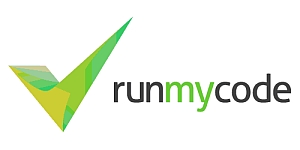Posted: November 7th, 2014 | Author: Sven | Filed under: Data Sharing, EDaWaX | Tags: academic publishing, economics | Comments Off on Open Access to Data: An Ideal Professed but not Practised
 The two economists Patrick Andreoli-Versbach and Frank Mueller-Langer (both from the Max Planck Institute for Innovation and Competition in Munich) have published a new paper in Research Policy in which they analyse the data-sharing behaviour of 488 randomly selected empirical researchers.*
The two economists Patrick Andreoli-Versbach and Frank Mueller-Langer (both from the Max Planck Institute for Innovation and Competition in Munich) have published a new paper in Research Policy in which they analyse the data-sharing behaviour of 488 randomly selected empirical researchers.*
Andreoli-Versbach and Mueller-Langer (2014) provide evidence that most researchers in economics and management do not share their data voluntarily. The authors Read the rest of this entry »
Posted: October 21st, 2014 | Author: Sven | Filed under: found on the net, journals, Research Data | Tags: academic publishing | Comments Off on Science established “Statistical Board of Reviewing Editors” to investigate data
 In order to provide better oversight of the interpretation of observational data handed in to the journal along with manuscripts, Science established the Statistical Board of Reviewing Editors (SBoRE), which started working on 1st July, 2014.
In order to provide better oversight of the interpretation of observational data handed in to the journal along with manuscripts, Science established the Statistical Board of Reviewing Editors (SBoRE), which started working on 1st July, 2014.
The board consists of experts in various aspects of statistics and data analysis. Their task is to investigate manuscripts, in order to identify issues which need screening, and to suggest experts from the statistics community to examine that data. Editors, BoRE members (members of the BoRE – Board of Reviewing Editors – conduct a rapid quality check of the manuscripts and propose which of them should be reviewed by technical specialists), and reviewers can decide which manuscripts need additional examination of the data analysis or statistical treatment, which will then be handed in to the SBoRE. Read the rest of this entry »
Posted: October 9th, 2014 | Author: Sven | Filed under: found on the net, Projects | Tags: academic publishing, Data Sharing, incentives, metrics | Comments Off on PLOS, CDL, and DataONE join forces to build incentives for data sharing
 The open access publisher PLOS (Public Library of Science), the University of California Curation Center at the California Digital Library, and DataONE announced the launch of a new project to develop data-level metrics. The project, titled “Making Data Count: Developing a Data Metrics Pilot” is funded by the National Science Foundation (NSF) in the US. The project will result in a suite of metrics that track and measure data use.
The open access publisher PLOS (Public Library of Science), the University of California Curation Center at the California Digital Library, and DataONE announced the launch of a new project to develop data-level metrics. The project, titled “Making Data Count: Developing a Data Metrics Pilot” is funded by the National Science Foundation (NSF) in the US. The project will result in a suite of metrics that track and measure data use.
The need for such a data metrics pilot is obvious: Sharing data is time consuming and researchers need incentives for undertaking the extra work. Metrics for data will provide feedback on data usage, views, and impact that will help encourage researchers to share their data. This project will explore and test the metrics needed to capture activity surrounding research data. Read the rest of this entry »
Posted: July 9th, 2014 | Author: Sven | Filed under: found on the net, journals | Tags: academic publishing, open access | 3 Comments »
 The two economists Klaus Wohlrabe and Daniel Birkmaier (both from the Ifo Institute for Economic Research in Munich) have published a new working paper in which they analyse the impact of open access publishing in economics on citations.
The two economists Klaus Wohlrabe and Daniel Birkmaier (both from the Ifo Institute for Economic Research in Munich) have published a new working paper in which they analyse the impact of open access publishing in economics on citations.
Their sample consists of articles from 2005 from 13 economic journals (including the top five journals). In addition to standard mean comparisons Wohlrabe and Birkmaier also use a negative-binomial regression model with several covariates to control for potential selection effects and quality bias. For their analysis they used citation data from three different databases, namely the Web of Science, RePEc and Google Scholar.
The results they retrieved are very interisting and might light the debate on open access publishing in academia.
Read the rest of this entry »
Posted: February 19th, 2014 | Author: Sven | Filed under: Data Sharing, journals, Projects | Tags: academic publishing, data citation | Comments Off on OJS-Dataverse Integration Plugin released!
 In one of my previous blog posts I introduced the PKP/IQSS OJS-Dataverse integration project. After a really short developmental period the project now is happy to announce that the first version has been released! Congrats!
In one of my previous blog posts I introduced the PKP/IQSS OJS-Dataverse integration project. After a really short developmental period the project now is happy to announce that the first version has been released! Congrats!
The plugin has been developed by PKP (Public Knowledge Project) in collaboration with Harvard’s Institute for Quantitative Social Science (IQSS). Funded by a $1 million Alfred P. Sloan Foundation grant, the OJS-DVN project developed the plugin for journals that are using the Open Journal System (OJS). a journal management and publishing system .
Read the rest of this entry »
Posted: July 8th, 2013 | Author: Sven | Filed under: Data Policy, Data Sharing, Projects | Tags: academic publishing, access to data, Citation, Data Policies, Data Sharing | 1 Comment »
 Today I want to introduce the PKP- Open Journal System / Dataverse Integration Project to our readers, an approach that is in some parts quite similar to our own approach in the field of economics.
Today I want to introduce the PKP- Open Journal System / Dataverse Integration Project to our readers, an approach that is in some parts quite similar to our own approach in the field of economics.
Funded by a $1 million Alfred P. Sloan Foundation grant, the OJS-DVN project intends to develop a plugin for journals that are using the Open Journal System (OJS), a journal management and publishing system that has been developed by the Public Knowledge Project (PKP), to expand and improve access to research. Read the rest of this entry »
Posted: March 28th, 2013 | Author: Sven | Filed under: found on the net | Tags: academic publishing, open access | Comments Off on The darkest site of scholarly publishing
 Today I read an incredible story- published by Declan Butler in the very informative nature special issue on “the future of publishing.”
Today I read an incredible story- published by Declan Butler in the very informative nature special issue on “the future of publishing.”
Most of us know about the massive profit margins scholarly publishers earn every year. According to Björn Brembs the corporate scholarly publishing industry with roughly four billion US$ in profit every year, is a lucrative business. For example Reed Elsevier just published his “Annual Reports and Financial Statements” for 2012 – despite the Elsevier-Boycott in 2012 the company achieved revenues of £ 6.116 billion in 2012.
But as Butler reports in nature (“Sham journals scam authors“) also cybercriminals have understood that they can earn a lot of money with faking existing journals. But what has happened? Read the rest of this entry »
Posted: February 25th, 2013 | Author: Sven | Filed under: Data Sharing, Research Data | Tags: academic publishing, access to data, Guidelines, open access, Open Data | 1 Comment »
 John Paul Holdren, a chief advisor of US-President Obama on science and technology issues, has issued a memorandum that directs those agencies with more than $100 million in research and development expeditures…
John Paul Holdren, a chief advisor of US-President Obama on science and technology issues, has issued a memorandum that directs those agencies with more than $100 million in research and development expeditures…
“…to develop plans to make the results of federally-funded research publically available free of charge within 12 months after original publication.”
According to Holdren the directive is well-balanced:
“We wanted to strike the balance between the extraordinary public benefit of increasing public access to the results of federally-funded scientific research and the need to ensure that the valuable contributions that the scientific publishing industry provides are not lost.”
Read the rest of this entry »
Posted: February 11th, 2013 | Author: Sven | Filed under: journals, Report | Tags: academic publishing, Citation, recommendations, supplements | Comments Off on NISO and NFAIS publish Recommended Practice on Online Supplemental Journal Article Materials
 The National Information Standards Organization (NISO) and the National Federation for Advanced Information Services (NFAIS) have published a new Recommended Practice on Online Supplemental Journal Article Materials (NISO RP-15-2013).
The National Information Standards Organization (NISO) and the National Federation for Advanced Information Services (NFAIS) have published a new Recommended Practice on Online Supplemental Journal Article Materials (NISO RP-15-2013).
Supplemental materials are increasingly being added to journal articles, but until now there has been no recognized set of practices to guide in the selection, delivery, discovery, and preservation of these materials.
To address this gap, NISO and NFAIS jointly sponsored an initiative to establish best practices that would provide guidance to publishers and authors for management of supplemental materials and would address related problems for librarians, abstracting and indexing services, and repository administrators.
The Supplemental Materials project involved two teams working in tandem: one to address business practices and one to focus on technical issues. This new publication is the combined outcome of the two groups’ work.
Read the rest of this entry »
Posted: December 10th, 2012 | Author: Sven | Filed under: Data Policy, EDaWaX | Tags: academic publishing, Data Policies, Data Sharing, Linking Data and Publications | 1 Comment »
This article is cross-posted from the blog of the Open Economics Working Group
Background
 In Economics, as in many other research disciplines, there is a continuous increase in the number of papers where authors have collected their own research data or used external datasets. However, so far there have been few effective means of replicating the results of economic research within the framework of the corresponding article, of verifying them and making them available for repurposing or using in the support of the scholarly debate.
In Economics, as in many other research disciplines, there is a continuous increase in the number of papers where authors have collected their own research data or used external datasets. However, so far there have been few effective means of replicating the results of economic research within the framework of the corresponding article, of verifying them and making them available for repurposing or using in the support of the scholarly debate.
In the light of these findings B.D. McCullough pointed out: “Results published in economic journals are accepted at face value and rarely subjected to the independent verification that is the cornerstone of the scientific method. Most results published in economics journals cannot be subjected to verification, even in principle, because authors typically are not required to make their data and code available for verification.” (McCullough/McGeary/Harrison: “Lessons from the JMCB Archive”, 2006)
Harvard Professor Gary King also asked: “[I]f the empirical basis for an article or book cannot be reproduced, of what use to the discipline are its conclusions? What purpose does an article like this serve?” (King: “Replication, Replication” 1995). Therefore, the management of research data should be considered an important aspect of the economic profession.
Read the rest of this entry »
Posted: November 14th, 2012 | Author: Sven | Filed under: found on the net | Tags: academic publishing, data publication, demonstrator, economics, enhanced publications, Open Data | Comments Off on Found on the ‘net: OpenAIRE, OA in Economics and Benefits of Open Data
Today I want to point the attention of our readers to some actual developments, articles and blog posts. Actually, there are too many interesting topics to be addressed in single posts. Therefore I collected some facts in a buildup.
Open AIRE releases demonstrators for enhanced publications
 The OpenAIRE initiative (www.openaire.eu) has recently released demonstrators for enhanced publications. These focus on linking literature to associated research data and project information in two different disciplines: life sciences and social sciences.
The OpenAIRE initiative (www.openaire.eu) has recently released demonstrators for enhanced publications. These focus on linking literature to associated research data and project information in two different disciplines: life sciences and social sciences.
The pilots are ‘work in progress’, but Open AIRE warmly welcomes feedback at this stage from researchers, open science enthusiasts, librarians and all on how the initiative can improve and develop these pilots further, especially from the researcher’s point of view.
The demonstrators are available here: https://www.openaire.eu/en/component/content/article/9-news-events/424-subject-specific-pilots-for-enhanced-publications
To get in touch with Open AIRE directly with any questions, feel free to write an Email to najla.rettberg [at] sub.uni-goettingen.de.
Ross Mounce: Review of Open Access in Economics
 Ross Mounce, a PhD student at the University of Bath, wrote an interesting blog post about the development of open access publishing in economics. Ross states that 17% of the overall literature space (1.66 million articles) in 2011 were published open access. This is a comparatively good result. Nevertheless the remaining 83% of all articles are still published closed access. Read the rest of this entry »
Ross Mounce, a PhD student at the University of Bath, wrote an interesting blog post about the development of open access publishing in economics. Ross states that 17% of the overall literature space (1.66 million articles) in 2011 were published open access. This is a comparatively good result. Nevertheless the remaining 83% of all articles are still published closed access. Read the rest of this entry »
Posted: September 28th, 2012 | Author: Sven | Filed under: Projects | Tags: academic publishing, Replication | 1 Comment »
 Last week Patrick, one of our project partners, made me aware of a very interesting website and service for researchers that is called runmycode.org. The concept of RunMyCode can be viewed as a novel attempt to provide an executable paper solution.
Last week Patrick, one of our project partners, made me aware of a very interesting website and service for researchers that is called runmycode.org. The concept of RunMyCode can be viewed as a novel attempt to provide an executable paper solution.
Therefore I am very happy that Prof. Pérignon, one of the co-founders, has written a short introduction for our blog. If you would like to get more information about RunMyCode just visit the website or contact the team. Read the rest of this entry »
Posted: September 19th, 2012 | Author: Sven | Filed under: Projects | Tags: academic publishing, Data Policies, Data Sharing, Linking Data and Publications | 1 Comment »
 Journal Research Data Policy Bank (JoRD) is a JISC funded initiative conducting a feasibility study into the scope and shape of a sustainable service that will collate and summarise journal policies on Research Data to provide researchers, managers of research data and other stakeholders with an easy source of reference to understand and comply with these policies. Read the rest of this entry »
Journal Research Data Policy Bank (JoRD) is a JISC funded initiative conducting a feasibility study into the scope and shape of a sustainable service that will collate and summarise journal policies on Research Data to provide researchers, managers of research data and other stakeholders with an easy source of reference to understand and comply with these policies. Read the rest of this entry »
Posted: July 3rd, 2012 | Author: Sven | Filed under: Data Sharing | Tags: academic publishing, Datasets, Linking Data and Publications | Comments Off on Thompson Reuters announces Start of „Data Citation Index“
 Thomson Reuters, known for the Social Sciences Citation Index (SSCI) or the Web of Knowledge, has announced to start a “data citation index (DCI).”
Thomson Reuters, known for the Social Sciences Citation Index (SSCI) or the Web of Knowledge, has announced to start a “data citation index (DCI).”
This new index will incorporate content from data sets and data studies deposited in over 80 established, curated repositories, from around the World, multidisciplinary coverage across social sciences, physical sciences, life sciences and arts and humanities. The aim of the DCI is to facilitate the discovery, use and attribution and data studies, and link those data to peer reviewed literature.
Read the rest of this entry »
Posted: April 23rd, 2012 | Author: Sven | Filed under: journals, Opinion | Tags: academic publishing, fraud, psychology, Replication | 1 Comment »
 “If you’re a psychologist, the news has to make you a little nervous…”. With this statement Tom Bartlett introduced his article “Is Psychology About to Come Undone?” in the Chronicle of Higher Education.
“If you’re a psychologist, the news has to make you a little nervous…”. With this statement Tom Bartlett introduced his article “Is Psychology About to Come Undone?” in the Chronicle of Higher Education.
The source of his fears is the Reproducibility Project – a group of researchers that aim to replicate every study within the three journals Psychological Science, the Journal of Personality and Social Psychology and the Journal of Experimental Psychology: Learning, Memory, and Cognition published in the year 2008.
The project is part of Open Science Framework (OSF), a group that is interested in increasing the alignment between scientific values and scientific practices. Despite developing some tools and infrastructure projects its stated mission is to “estimate the reproducibility of published psychological science.”
Read the rest of this entry »
 The two economists Patrick Andreoli-Versbach and Frank Mueller-Langer (both from the Max Planck Institute for Innovation and Competition in Munich) have published a new paper in Research Policy in which they analyse the data-sharing behaviour of 488 randomly selected empirical researchers.*
The two economists Patrick Andreoli-Versbach and Frank Mueller-Langer (both from the Max Planck Institute for Innovation and Competition in Munich) have published a new paper in Research Policy in which they analyse the data-sharing behaviour of 488 randomly selected empirical researchers.*
 The open access publisher
The open access publisher  The two economists Klaus Wohlrabe and Daniel Birkmaier (both from the
The two economists Klaus Wohlrabe and Daniel Birkmaier (both from the  In one of my previous blog posts I introduced the
In one of my previous blog posts I introduced the 
 John Paul
John Paul  The National Information Standards Organization (
The National Information Standards Organization ( In Economics, as in many other research disciplines, there is a continuous increase in the number of papers where authors have collected their own research data or used external datasets. However, so far there have been few effective means of replicating the results of economic research within the framework of the corresponding article, of verifying them and making them available for repurposing or using in the support of the scholarly debate.
In Economics, as in many other research disciplines, there is a continuous increase in the number of papers where authors have collected their own research data or used external datasets. However, so far there have been few effective means of replicating the results of economic research within the framework of the corresponding article, of verifying them and making them available for repurposing or using in the support of the scholarly debate.
 Ross Mounce, a PhD student at the University of Bath, wrote an interesting blog post about the development of open access publishing in economics. Ross states that 17% of the overall literature space (1.66 million articles) in 2011 were published open access. This is a comparatively good result. Nevertheless the remaining 83% of all articles are still published closed access.
Ross Mounce, a PhD student at the University of Bath, wrote an interesting blog post about the development of open access publishing in economics. Ross states that 17% of the overall literature space (1.66 million articles) in 2011 were published open access. This is a comparatively good result. Nevertheless the remaining 83% of all articles are still published closed access.  Last week Patrick, one of our project partners, made me aware of a very interesting website and service for researchers that is called
Last week Patrick, one of our project partners, made me aware of a very interesting website and service for researchers that is called 






